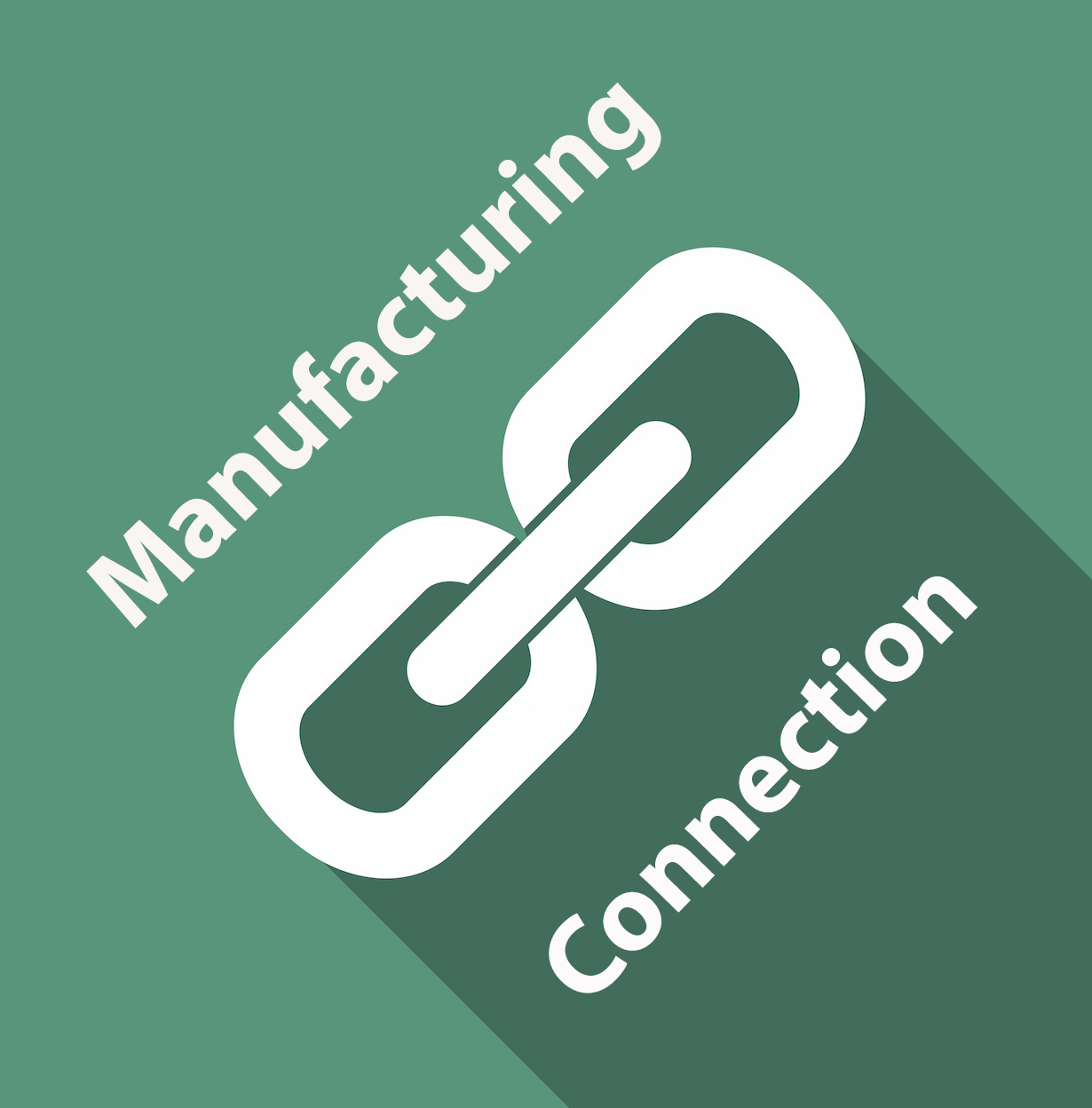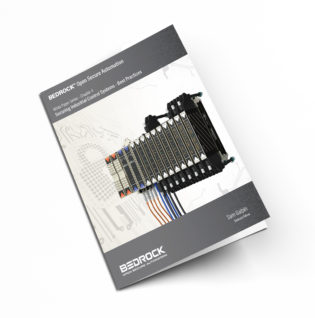
by Gary Mintchell | Jan 24, 2018 | Automation
Here is an interesting idea in the manufacturing services meets social media area. Let me know if you use this and how it worked. Volt480, which is dedicated to helping manufacturers recover faster during downtime, announced a new app that quickly connects plant managers with locally available service providers including automation system integrators and industrial electricians through an on-demand marketplace. The Volt480 app also uses machine learning to help solve problems faster.
The value proposition: When equipment fails due to this technology, companies can lose on average $40,000 an hour. The Volt480 app reduces downtime by quickly locating specialized technicians to troubleshoot and repair complex, interconnected systems that are sometimes mixed with obsolete technologies. The service also helps streamline the burdensome procurement process to quickly order and pay for emergency services.
“Volt480 was developed to help plant managers recover from downtime in half the time and half the cost,” said Volt480 Chief Executive Officer Bhavnesh Patel. “Because we know that every minute counts when production systems fail, we connect you immediately to a highly-skilled expert near you through our on-demand platform. Our real-time filtering algorithm enables manufacturers to find the right resource with the right skills right away.”
How it works
Volt480 combines an on-demand, crowd-sourced services platform with machine learning technology that collects data on the problem and solution across a wide variety of production equipment and technologies. This knowledge enables the company to build machine-learning models to address future failures.
Customers use the app to locate and connect with service providers who are knowledgeable and experienced with their equipment. Service providers set their own rates, and Volt480 processes the payment through the service, saving customers from working through the traditional PO/invoicing process.
Manufacturers then have an opportunity to rate their experience with the service provider, which can be viewed by other potential customers.
“When manufacturing equipment breaks down and production stops, every moment counts. Plant managers don’t have time to research the equipment and match it with a service provider that may or may not be familiar with the system, especially with older or obsolete automation control systems,” said Jim Keighley, former vice president of engineering for Kraft Foods. “With Volt480 at their fingertips, they can quickly browse for local/regional service providers, see ratings, prices, profiles, distance from their facility and contact them in an instant. And payment is easily handled via credit card.”
Volt480 also opens doors for service providers, helping systems integrators, control engineers and automation engineers build their businesses through a new network of potential customers.
“By registering my services with Volt480, I can be introduced to hundreds of potential customers,” said Richard Morales, a controls technician with Tornado Automation. “And I have the potential to be paid faster and with less effort than the traditional PO/invoicing process.”
“The machine learning capabilities of the Volt480 app will help speed the repair process, getting our clients back to work faster and our technicians on to their next assignment,” said Jeff Lea, CEO of Real Time Automation.
Availability
Volt480 is being rolled out as a pilot program for small-to-midsize manufacturers in Texas. The app is available through the Apple App Store and Google Play. After completing the pilot launch, the program will be offered to more than 16,000 food manufacturers in California and Texas.

by Gary Mintchell | Jan 18, 2018 | News
Acquisitions are a big reason explaining growth and innovation in big companies. Not that long ago Emerson acquired partner Mynah Technologies. Today I see that it acquired ProSys. These are both good acquisitions. Emerson has a better than average success with acquisitions. ProSys is a good fit. Congratulations.
Emerson announced it has acquired ProSys Inc., a global supplier of software and services that increase production and safety for the chemical, oil and gas, pulp and paper, and refining industries. By building intuitive processes for plant operators, these solutions make everything from everyday operations to responding during abnormal situations easier.
“Adding ProSys’ differentiated technologies and expertise allows us to help our customers improve plant performance, safety and profitability by optimizing their human and automation resources,” said Mike Train, executive president, Emerson Automation Solutions. “With ProSys, we can provide innovative control and operator performance capabilities to make control room operators far more effective.”
ProSys’ portfolio includes solutions that help operators manage alarms critical to plant production and safety, and efficiently handle changing plant states. In addition, ProSys provides modern, high performance and intuitive graphics for better operator communications.
ProSys complements Emerson’s May 2017 acquisition of MYNAH Technologies, which provides dynamic simulation and operator training software. Together, these technologies embed expertise to help operators navigate plant systems safely and efficiently, and prepare customers to accommodate the changing state and age of the industrial workforce.
“Our specialization in software and services that increase operator performance builds on Emerson’s market leadership in automation control systems,” said Dustin Beebe, president and CEO at ProSys. “By working together as one, we can provide even more operational and financial value to customers.”
Beebe will join Emerson Automation Solutions as vice president, control and operator performance.
The ProSys software portfolio supports Emerson’s Operational Certainty program designed to help industrial companies achieve Top Quartile performance in areas of safety, reliability, and production.
Terms of the acquisition were not disclosed.
by Gary Mintchell | Jan 16, 2018 | Automation, Security
Cyber security is on the mind of all of us. The Internet of Things, digital factory, Industry 4.0, and all of the new strategies for improving manufacturing and production efficiencies contain a common element. They all inherently contain connections that can possibly be attacked by cyber hackers.
We are all concerned with foreign government attacks that can blow up facilities, poison water supplies, and other doomsday scenarios we can imagine. However, most hackers are really after a pay day. A big pay day. They can hold your process—and your business—hostage until you fork over some cash.
I have had many interesting cybersecurity conversations with Albert Rooyakkers, founder and CEO of Bedrock Automation. He has built a powerful controller with security designed in from the chips on up. He’s been touting the “Open Secure Automation (OSA)” platform lately.

The company just released a new white paper on the cyber security vulnerabilities and defense of industrial control systems. The 20-page document, Securing Industrial Control Systems – Best Practices, covers the threat landscape and presents a holistic approach to defending it, including assessing risk, physical security, network security, workstation and server security, as well as the fundamentals of OSA.
I just read it and found it informative. You can download it here along with the previous three papers in the series.
“As we discuss cyber security with users of automation, we find that many are aware of the threat potential but are not sure if they are doing enough to protect themselves. We saw the need for a technical paper that explains both the mindset and motives of an attacker, as well as the tools and technologies of defense. This paper defines the issues in a practical, holistic way while providing recommendations on how to begin and sustain best practices for cyber defense,” said Rooyakkers.
The first half of the paper covers conventional cyber security practices that apply to all industrial control systems. It provides an assessment of the threats, including drive-by attacks, advanced persistent threats (APTs), espionage, process attacks, and ransomware. It also looks at assessing the related risks, with an introduction to Process Hazards Analysis (PHA) and Hazards and Operability (HAZOP) methodologies used to identify malfunctions that might harm people, the process, or the environment.
To assist with risk assessment, the paper provides an overview of conventional protection practices. This includes network segmentation, firewalls, and DMZs; managing workstations, servers, end-users, and applications; and implementing active defense measures, including security event monitoring and management.
The second part of the paper is devoted to more recent techniques, based on the application of intrinsic cyber security advances that have been applied in military, aerospace, and ecommerce, and are now being used to protect industrial control systems. These create a hardware end-point root of trust that combines advanced cryptography, digital signing techniques, an industrial certificate authority, and public key infrastructure (PKIs) built into the control system to create an infrastructure for user defense.
The paper also presents the features of the Bedrock Open Secure Automation platform, which embraces the best practices discussed and details the process by which they can be applied to legacy and new systems.

by Gary Mintchell | Aug 29, 2017 | Automation, News, Organizations
Interoperability spurs innovation. After years of technological consolidation in the process automation industry with “distributed control systems” becoming ever more centralized, we are witnessing a resurgence of distributed, along with open and interoperable.
Open Process Automation Forum
Yesterday I discussed Foxboro promoting the Open Process Automation Forum. Today, I can report that the OPC Foundation has also formally joined the forum. It fits given that OPC UA is one of the key standards that the OPAF will need for its interoperable system to work.
The OPC Foundation has developed a whitepaper, an introspective on process automation, elaborating on the vision of OPC UA and why the OPC Foundation is engaging in The Open Process Automation Forum.
The OPC Foundation vision includes the key element of information modeling, providing a foundation for other standards organizations to directly plug-in their data/information models into OPC UA.
OPC UA Seminar Tour
Here is a free opportunity to learn about open standards, OPC UA, a chance to meet with leaders in the interoperability field – in one day, in one place. Oh, and at two of those sessions (Milwaukee and Cleveland) one of those leaders will be me!
The seminar is designed for corporate leaders, IT professionals, students and all interested in IT to learn more about open standards, their place in this constantly changing arena of IIot, Industre 4.0, the Cloud and beyond and how this knowledge will benefit their life, their career and their company.
This seminar tour will focus on the rich feature set of OPC UA and the unique ways these features are put to use in real applications. By attending these conferences you will:
- Learn how OPC UA provides Industrial Interoperability for the Internet of Things and Industry 4.0
- Learn about OPC UA in the world of the IIC, China 2025, Korea Manufacturing Innovation 3.0
- Hear why end-users are requiring vendors to build OPC UA into their products
- Get latest update on OPC-UA technology and further roadmap enhancements
- Learn how active collaborations with other industry organizations are working to revolutionize the transformation of data, providing an infrastructure for the modeling of information
- Network with industry experts and peers
- Hear how Microsoft is positioning Azure with OPC UA extensions
- How to connect your machine to SAP easily and standardized
- Learn why OPC UA is the one and only recommendation for communication channel for RAMI4.0 – the Reference Architecture Model Industrie 4.0
Here are the event details:
September 26 – San Diego
September 27 – Santa Clara
September 28 – Seattle
September 29 – Vancouver
October 3 – Minneapolis
October 5 – Toronto
October 9 – Milwaukee
October 11 – Cleveland

by Gary Mintchell | Apr 14, 2017 | Security
Keep watching the cybersecurity space for more action. Already this week, I wrote about two different approaches to industrial cybersecurity. Here is the story of an investment so that a company with history can pivot and go deeper into this market segment.
PAS has been known improving alarm management and control system asset integrity. It has moved aggressively into the cybersecurity area through leveraging existing technology and hiring talent. It has announced a $40 million growth investment by Tinicum, L.P. and certain affiliated funds managed by Tinicum Incorporated (“Tinicum”). Tinicum is a private investment partnership focused on late stage investments in manufacturing, energy, technology, media, and infrastructure.
This funding round will expand PAS sales and marketing across its global offices as well as increase research and development for Cyber Integrity, its flagship cybersecurity software product. Cyber Integrity protects critical infrastructure from risks associated with rising industrial internet of things (IoT) adoption, malicious cyber attacks, and insider threats.
“Critical infrastructure is vulnerable to outsider cyber attacks and to malicious or unintended insider actions,” says Trip Zedlitz, partner at Tinicum. “The cyber assets that matter most—the ones primarily responsible for safety and production in power generation plants, chemical facilities, and refineries—are some of the most insecure systems in the industry today. We invested in PAS because they secure this class of endpoints in a way that no other ICS cybersecurity software solution in the market can do, and they help companies comply with a growing regulatory and standards landscape that includes NERC CIP, NIST, and IEC 62443. With a strong management team and the rising global demand for critical infrastructure cybersecurity, we are excited about our investment in PAS.”
Industrial control systems have a responsibility for running critical infrastructure safely and reliably. These systems have traditionally relied on complexity, air gapping, and perimeter-based defenses to remain secure. Such strategies have proven largely unreliable and porous. PAS Cyber Integrity deciphers the complex, proprietary configurations of control systems giving companies complete visibility into critical cyber assets. It also identifies unauthorized changes, exposes vulnerabilities, drives compliance, and helps facilities recover rapidly in the event of a worst-case scenario. Cyber Integrity works across the heterogeneous automation environment, providing enterprise scalability, performance, and platform independence.
“PAS has a 23-year tradition of making industrial process facilities safer and more reliable,” says Eddie Habibi, founder and CEO at PAS. “Our deep expertise in control systems and production-centric approach to securing ICS give us a formidable competitive advantage. The investment from Tinicum enables us to expand our security solutions portfolio, strategically increase our global reach, and continue protecting our customers from an ever-evolving threat landscape.”
Signal Hill served as the exclusive financial advisor to PAS on the transaction. In conjunction with the investment, Plant Automation Services, Inc. (“PAS”) has reorganized under the new name PAS Global, LLC.








